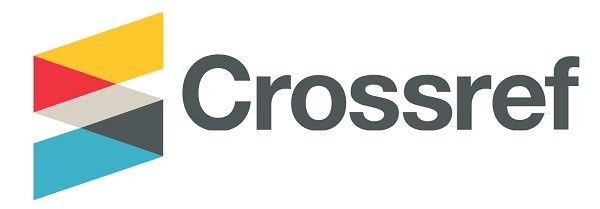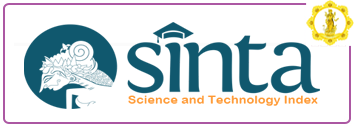EVALUASI PEMBELAJARAN HYBRID PADA INSTITUSI PENDIDIKAN INSTIKI DENGAN DISCREPANCY EVALUATION MODEL
DOI:
https://doi.org/10.25078/jpm.v8i02.1509Keywords:
program evaluation, discrepancy, hybrid learningAbstract
This research purpose to evaluate the effectiveness of the hybrid learning program at the INSTIKI Denpasar institution. This qualitative evaluative research uses the Discrepancy Evaluation Method model by Provus (1971) through 5 stages of design, installation, process, product, and cost-benefit analysis. Data were collected using interviews with Vice-Chancellor 1 for education, four lecturers and five students, observation, and documentation. Data analysis uses data collection, data reduction, data presentation, and verification. Based on the research, the objectives of the hybrid learning program were achieved. The results of the study found that the hybrid learning effectiveness program at the INSTIKI Denpasar institution was considered good with a description of the design stage, installation stage, stage on-campus that fulfilled eighty percent of the government's aspects, and stage four objectives were achieved so that it was of good value. In the comparison phase with other programs, each program is helpful but supports the other. Four gaps were found in the program: the lack of parental involvement in the classroom and the cessation of lecturer-to-lecturer activities. There is no combination of news and accompanying readings, caregivers participate in the program. Researchers suggest continuing this program with improvements
Downloads
References
E. P. Widoyoko, “Evaluasi Program Pembelajaran : Panduan Praktis Bagi Pendidik dan Calon Pendidik”,” 2021.
B. A. Mashur, “Pengembangan Kurikulum Pelatihan Untuk Meningkatkan Pemahaman Guru Tentang Penelitian Tindakan Kelas (PTK),” J. Civ. Soc. Stud., vol. 3, no. 1, pp. 40–46, 2019.
I. Kartiko and H. L. Mampouw, “Pengembangan E-Modul Berbasis Aplikasi Android pada Materi Perbandingan Berbalik Nilai,” J. Cendekia J. Pendidik. Mat., vol. 5, no. 2, pp. 1700–1710, 2021.
H. S. Iriansyah, “Membangun Kreativitas Guru dengan Inovasi Pembelajaran di Masa Pandemi Covid-19,” Pros. Semin. Nas. Pendidik. STKIP Kusuma Negara II, no. 1, pp. 1–6, 2020.
N. NORMA, “Meningkatkan Hasil Belajar Peserta Didik Melalui Media Video Pembelajaran Pada Pembelajaran Jarak Jauh Di Masa Pandemi Covid-19,” Soc. J. Inov. Pendidik. IPS, vol. 1, no. 2, pp. 101–115, 2021.
S. Wulandari, D. Octaria, and A. S. Mulbasari, “Pengembangan E-Modul Berbantuan Aplikasi Flip Pdf Builder Berbasis Contextual Teaching and Learning,” vol. 5, no. 2, pp. 389–402, 2021.
N. Nurdin and L. Anhusadar, “Efektivitas Pembelajaran Online Pendidik PAUD di Tengah Pandemi Covid 19,” J. Obs. J. Pendidik. Anak Usia Dini, vol. 5, no. 1, p. 686, 2021.
M. Kristiawan, N. Aminudin, and F. Rizki, “Optimalisasi Pembelajaran Daring Berbasis Aplikasi Online bagi Calon Guru Pendidikan Anak Usia Dini,” J. Obs. J. Pendidik. Anak Usia Dini, vol. 5, no. 2, pp. 1905–1914, 2021.
Ayu Nilna Amelia Ahmadillah, “Pengaruh Pembelajaran Model Hybrid Learning Terhadap Peningkatan Pemahaman Siswa Mata,” 2021.
E. Johnson, R. Morwane, S. Dada, G. Pretorius, and M. Lotriet, “Adult Learners’ Perspectives on Their Engagement in a Hybrid Learning Postgraduate Programme,” J. Contin. High. Educ., vol. 66, no. 2, pp. 88–105, 2018.
M. A. Mulaudzi, “The implementation of hybrid problem-based learning to foster Senior Phase Technology student teachers’ self-directed learning abilities,” 2021.
T. Wibawanto, “MEMAKSIMALKAN PEMBELAJARAN DISAAT PANDEMI MELALUI HYBRID LEARNING DENGAN PORTAL RUMAH BELAJAR,” Pengembang Teknol. Pembelajaran Ahli Muda LPMP Provinsi Lampung, 2021.
G. P. Benadé, Implementing hybrid problem-based learning in Mechanical Technology to enhance pre-service teachers’ self-directed learning, no. July. 2020.
Y. Indarta, Ambiyar, and R. Samala, Agariadne Dwingo, Wathrianthos, “Metaverse: Tantangan dan Peluang dalam Pendidikan,” J. Basicedu, vol. 6, no. 3, pp. 3351–3363, 2022.
A. Akla, “Arabic Learning by Using Hybrid Learning Model in University,” J. Al Bayan J. Jur. Pendidik. Bhs. Arab, vol. 13, no. 1, pp. 32–52, 2021.
P. Ramadani, “Pengembangan Kurikulum Pendidikan Dan Pelatihan (Diklat) Berbasis Masalah,” JMAEL J. Manag. Adm. Educ. Leadersh., vol. 1, no. 2, pp. 43–46, 2020.
S. Jumini, A. Rusilowati, and E. Cahyono, “Discrepancy Models Evaluation (DEM) in Physics Based Learning Project (PjBL) of Student Entreprenurship Character,” 6th Int. Conf. Sci. Educ. Technol. (ISET 2020), vol. 574, no. February 2018, pp. 62–68, 2021.
R. M. Lia, “Developing A Discrepancy Evaluation Model ( Dem ) To Optimize PEP Unnes Online Workshop Series,” vol. 574, no. Iset 2020, pp. 114–119, 2021.
B. Bulkani, M. A. Setiawan, and W. Wahidah, “the Discrepancy Evaluation Model in the Implementation of Online Learning (on the Basis of Parents’ Perceptions),” Obraz. i Nauk., vol. 24, no. 2, pp. 116–137, 2022.
S. Jumini, A. Rusilowati, S. Sutikno, E. Cahyono, P. Parmin, and F. Firdaus, “Discrepancy evaluation models in physics project based learning of student entrepreneurship character,” J. Phys. Conf. Ser., vol. 1918, no. 2, 2021.









